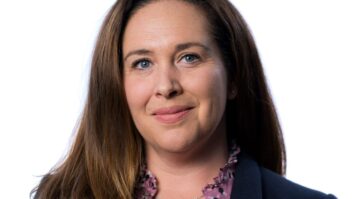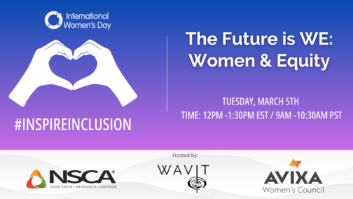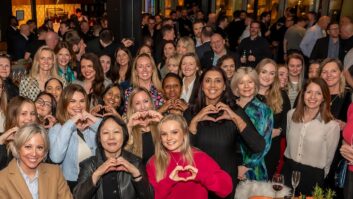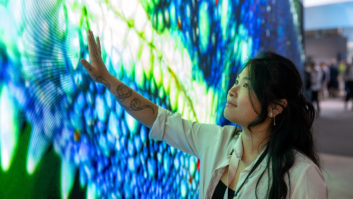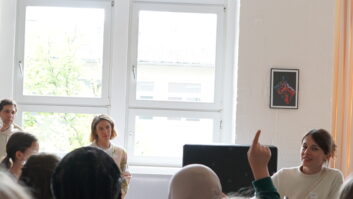In life we have a moral imperative to treat everyone the same, regardless of gender, race, religion, sexuality or any other aspect of personal identity. We know diversity is important, yet a lack of inclusion continues to hinder our workforces – even in AV. The world of AV moves fast – just look at the pace of change since the start of the pandemic! – so, in terms of diversity in the workplace, just how far behind are we?
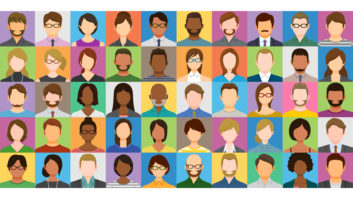
Picture the scene: you are at a job interview, with the skills and experience on your CV getting you this far. Now it’s all about navigating questions from your potential employer in the hope you land the position.. You’d like to think there was nothing more at play here than your professional experience, and as a white person you would probably be right – especially as a white male interviewed by a white male. But if you’re a person of colour – perhaps even a woman of colour – your CV is likely not to be the interviewers only consideration. Uncomfortable reading? Perhaps. But this is the situation many people find themselves in, every time they apply for a job.
“There has not been a time whether my race or gender or both didn’t affect my [AV] career,” explains Charmaine Torruella, global services manager for Verrex and chairperson of AVIXA’s diversity council. “A person of colour has to have several manoeuvres in order to make their existence relevant and receive the value they deserve.”
PLAYING FAIR
Going above and beyond to prove oneself in what should be a level playing field, feels wholly unfair and is clearly discriminative. But Torruella is not alone in feeling isolated in our industry, Althea Ricketts, associate vice president at Shure says we simply do not see diversity on AV boards. “I’ve experienced blatant career challenges as a result of being a woman in a male dominated industry, and as a result of the colour of my skin,” she says.
Whether conscious or unconscious bias, the people I spoke with have clearly faced prejudice in the workplace, especially in terms of career progression. Ricketts experienced blatant exclusion during an interview process, with her manager at the time even telling her she lost out to a less experienced candidate.
In their last meeting, her manager shared this with her: “I don’t want to set you up for failure, but although you are probably more qualified for this role, you won’t be successful as you’re gonna have to interact with lots of leaders and their aren’t a lot of people like you in this industry. I don’t want you to fail, so I’m not gonna recommend you for this promotion.” Fortunately for Ricketts, her next manager realised her potential and she was immediately promoted.
Being pitted against male counterparts is another issue. Male dominance is everywhere: most CEOs are male, as are most entrepreneurs and the majority of politicians – although the latter is improving in this regard, in the UK at least.
Between 1918 and 2021, only 556 women had been elected as Members of the House of Commons in the UK’s Houses of Parliament. And although in July 2021 there were 222 women in the House – an all-time high at 34% of the total Membership – the UK, one of the world’s most progressive in terms of gender in politics, still has a way to go.
In terms of race – notwithstanding the number of heavy-hitting people of colour in the current Government, including the Chancellor, Home Secretary and Health Secretary – UK politics is certainly no shining beacon. In 2019, only 65 of the UK’s 650 Members of Parliament were non-white – 41 of which were Labour Party politicians, 22 in the ruling Conservative party, and two in the Liberal Democrats.
BLAME GAME
Back to AV, and Torruella experienced such male-female inequalities when a male counterpart was not reprimanded for disregarding company procedure, when she got blamed for calling it out. “On another occasion, I’ve been told my email was professional enough but my manager didn’t like the tone,” she says, and remarks have also been made that her correspondence should be ‘sweeter’!
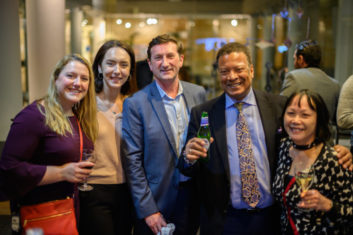
Of course, systemic bias is not just felt by women in our industry, as Yag Depala, sales and marketing director at Reflex explained to me. In his early career, Depala was working away from home so decided to book into a hotel, phoning in advance to ensure there were rooms available – he was advised that there were plenty. Upon turning up to check in, he was told that no rooms were free. “Obviously, I mentioned the conversation that took place only moments earlier and was told ‘that was 15 minutes ago’. I must admit I felt physically sick as I left. It did leave a mental scar on me for a long time after.”
AVIXA’s Diversity Council is tackling issues such as these head on in the AV industry, offering a whole host of free training sessions and webinars on topics such as neurodiversity, LGBTQ+, mental health, inclusive language and diversity in AV. AVIXA’s aim is to bring together professionals from various backgrounds and cultures to facilitate a larger dialogue around initiatives of inclusion within AV.
“Historically I would say the AV industry has not been inclusive,” says Ricketts, an elected member of AVIXA’s Diversity Council. “But looking to the future, I see positive change. AVIXA is doing some great things with diversity, equity and inclusion. Their Diversity Council is moving the needle and raising the bar.”
In a world where assumptions based on ethnicity can often hamper job opportunities, it has been known that candidates have ‘westernised’ the name on their CV to better chances of landing the job.
A University in Toronto conducted a study entitled ‘Why do some employers prefer to interview Matthew, but not Samir?’.
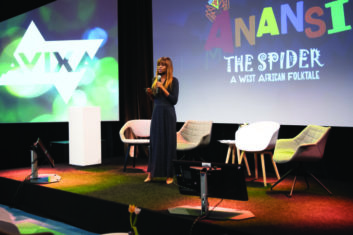 As part of the study, CVs were sent out to employers in Toronto, Montreal and Vancouver
As part of the study, CVs were sent out to employers in Toronto, Montreal and Vancouver
and it transpired that applicants with Chinese, Indian or Pakistani names were 40% less likely to get an interview call than those with European names. Canada is well known for celebrating diversity and multiculturalism and has a more favourable immigration policy than that of many of its peers in the developed world, and yet biases like these still exist. If this form of bias is so widespread, we should perhaps be reviewing our entire interview process.
“Anonymising personal identification data will ensure that candidates from various races, ages, genders, and backgrounds will have an equal opportunity for securing the same job,” opines Sonal Bisht, head of communications EMEA at Poly.
“In an ideal world, all personal identification data should be kept anonymous during the candidate search and selection process. This means that each candidate’s name, phone number and university names should be anonymised – this way, the selection will be based on skillset and experience.”
FUTURE HOPE
Thankfully, it seems as though there is hope for the future: awareness is being spread and conversations are being opened up. Everyone is much more ‘woke’ these days, and it seems like every couple of months a new controversy puts diversity back to the front of everyone’s thinking. Only in the last few weeks the England and Wales Cricket Board (ECB) was left reeling from revelations coming out of Yorkshire County Cricket of widespread and endemic racism. Nothing to celebrate of course, but it is hoped rapid and widespread change will come about as a result.
“In the 30+ years that I’ve been in the AV industry, I am the most hopeful than I’ve ever been about change,” says Ricketts. “The fact that these questions are being asked, and we’re having these hard conversations, is bringing this to the forefront. Inclusion means…just that…including more than one voice in the conversation. Diversity of thought, in this global world is a must for any business. The worst thing possible is to be asked to the party, and once you arrive, not being asked to dance – I want to make sure everyone is dancing at my party.”
Personal bias and company policy are not due to change overnight any time soon – whether that’s in the wider business world, politics, sport or the AV industry. It will involve great effort on a personal and industry wide level. But the rewards await all of us who strive for equality and diversity, and – in AV at least – this will be a more well rounded industry, with a preponderance of new talent. To quote AVIXA, ‘a rising tide to lift all ships’.
HONEST INCLUSIVITY
If our industry wants to grow, we need to be honest and open to improving our inclusion and mitigating our insulation. As a Hindu, Depala imparts his wisdom on this on the subject succinctly: “I firmly believe in the saying ‘Vasudhaiva Kutumbakam’ – the whole world in one family. “I hope and believe there will be some good to come from this. I am pleased that the issue has been brought to light by way of this feature and even staged at ISE [in June]. Let’s hope this continues to bring the AV sector together as one family. Life’s too short.”


